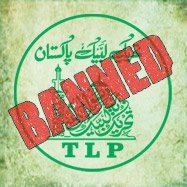Why SAARC Would Not Allow Foreign Ministers Meet to Legitimise Taliban Regime
Research Fellow, Manohar Parrikar IDSA, Dr. Smruti S. Pattanaik’s commentary ‘Why SAARC would not allow Foreign Ministers meet to Legitimise Taliban Regime’ has been published by the Society for the Study of Peace and Conflict (SSPC) online, on September 25, 2021.
The South Asia Association for Regional Cooperation (SAARC) Foreign Ministers meet on the sidelines of the United Nations General Assembly (UNGA) meeting has become a convention since 1997. Despite the SAARC Summit meetings being cancelled or postponed, the SAARC foreign Ministers have met regularly to discuss the regional affairs. Lately, since 2018, the India Pakistan conflict has also spilled over to the SAARC foreign ministers meet in New York, says Dr. Pattanaik.
- Published: 25 September, 2021












